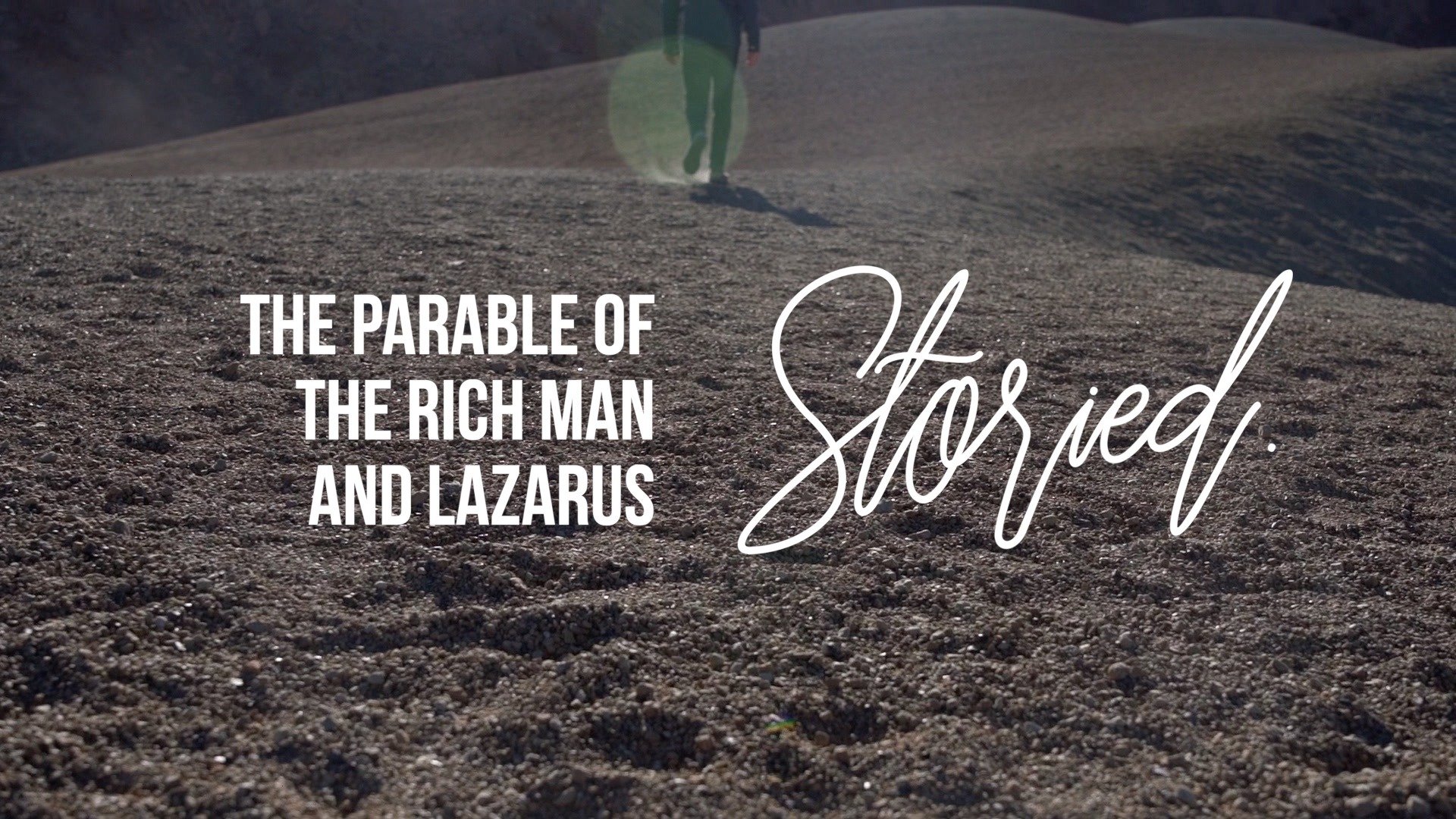Reflections from The Parable of The Rich Man and Lazarus in Luke 16:19-31
The Four Sentence Story
The Four Sentence Story is a memory pattern that can be used for preaching, teaching, and storytelling without notes. Every story can be broken down into four parts. The setting, tension, resolution, and through line. Memorize these four parts, add your own creativity into the mix, and then watch the story unfold.
(setting) A rich man clothed in luxury without a need in the world ignores Lazarus, a man clothed in sores with every need in the world.
(tension) They both die and Lazarus is carried off by angels to Abraham’s side while the Rich Man is sent off in a lavish funeral to Hades where he finds himself in desperation.
(resolution) Even Hades hadn’t changed the Rich Man’s heart, the only need he had for Lazarus was asking Abraham to send Lazarus to serve him water in Hades and to warn his family of their impending doom.
(through line) Other peoples worth and value in life isn’t based on what we can get out of them, but the love God attributes to them.
Storyline Commentary on Luke 16:19-31
Every story can be broken down into a few parts. The setting, where the story takes place and why it might be important. The characters and their emotions and thoughts invested in the story. A tension that needs resolved. A resolution that brings us through the tension, and a through line (aka main idea) that carries the story through from beginning to end.
The Setting Verses 19-21: There’s a rich man who has everything in life and there’s a poor man, Lazarus, who has the worst of life.
The Characters
- The Rich Man, clothed in fine linens, of upper-level status, never short on food, even able to feed the dogs with the scraps from his table.
- Lazarus, a poor beggar clothed head to toe in sores that even the dogs come and lick.
The Tension Verses 22-23: Both men die but both men have very different fates. Lazarus is carried off by angles to Abraham’s side while the Rich Man is no doubt remembered in a lavish funeral as he finds himself in Hades. The Rich Man was able to feed even the dogs during his lifetime while completely ignoring another human being, created in God’s image, sitting outside his gates, just hoping that help would come one day.
The Resolution Verses 23-27: Lazarus finds comfort in the next life but the resolution to the Rich Man’s tension in life is that he now finds himself suffering. It becomes clear that even Hades hadn’t changed the Rich Mans heart because he bypasses Lazarus again by asking Abraham directly, send Lazarus to give me a cool drink of water and to warn my family. The parables ends with Abraham telling The Rich Man, not even someone coming back from the dead could convince hard hearts.
The Through Line Looking past people if we find no worth in them is not how God works in this world. It’s the people who have absolutely nothing to give and suffer in this life that Jesus bends towards.
Reflections on The Rich Man and Lazarus
Why has this story endured? It reveals that money is not what brings us value in this world, it’s the image of God that we’ve been created in that determines our worth.
What does this story tell us about God? God looks at the heart, now our power, status, or wealth.
What does this story tell us about humanity? We all constantly chase after things that we think will bring us worth, when in reality there’s nothing we can do in this world that determines our worth. Our worth is determined singularly by God and God has already decided that we were ALL worth dying for (John 3:16).
What is true for them then that is still true for us today? People still ignore others in need unless they find themselves needing that persons help.
Where is the Gospel/Good News in this story? God has sent Moses, the prophets, and Jesus, to reveal to us that God want’s to be in right relationship with us and we reflect that by being in right relationship with our neighbors.
How does this story help us love God? It helps us realize there’s nothing we can do to make God love us because God already loves us. Once we free ourselves from the performance, we can discover a God that loves us misfortunate and all.
How does this story help us love people? Loving others isn’t based on what they can do for us. The purest love we could hope for is extending that love to those who have nothing to offer us in return.










